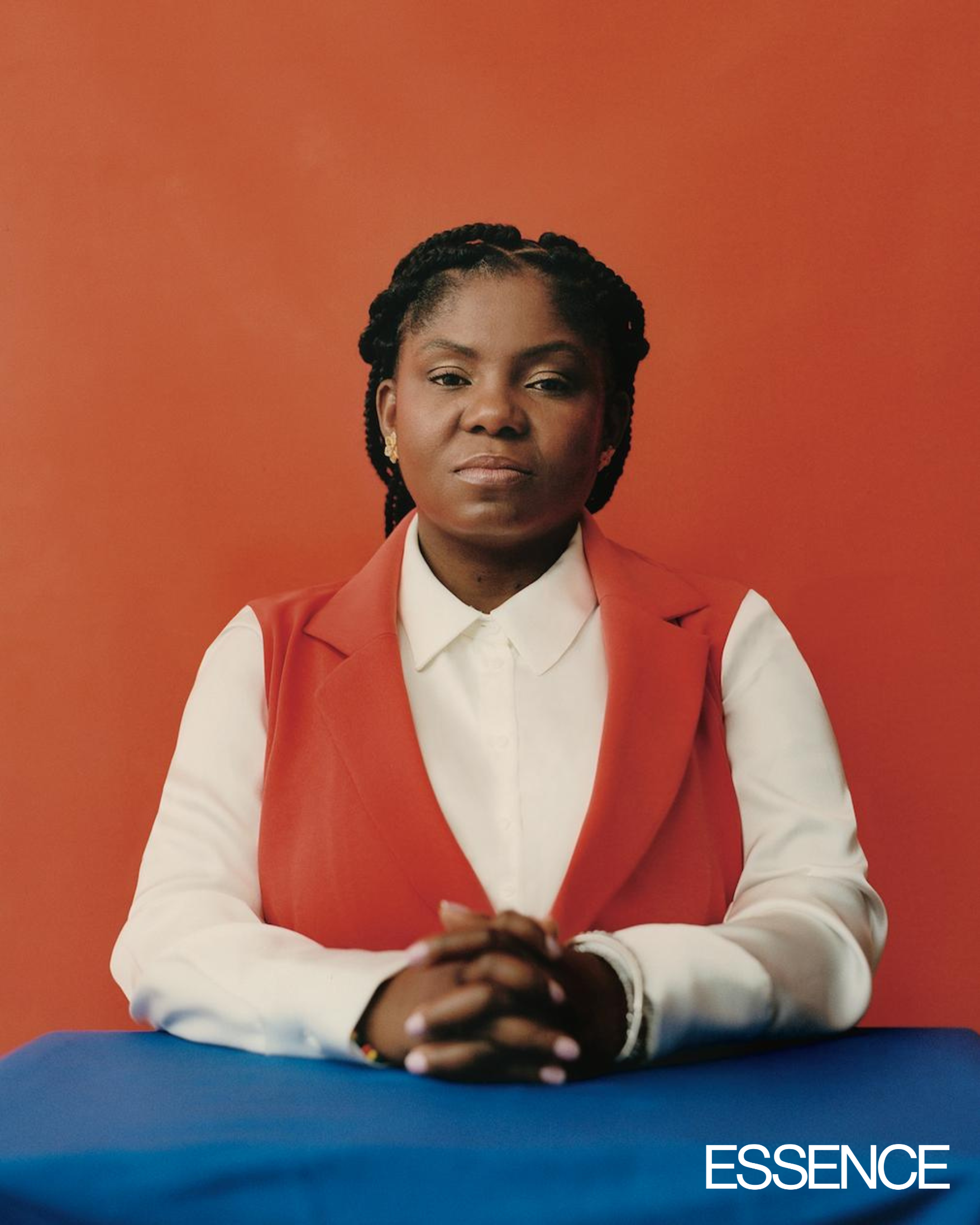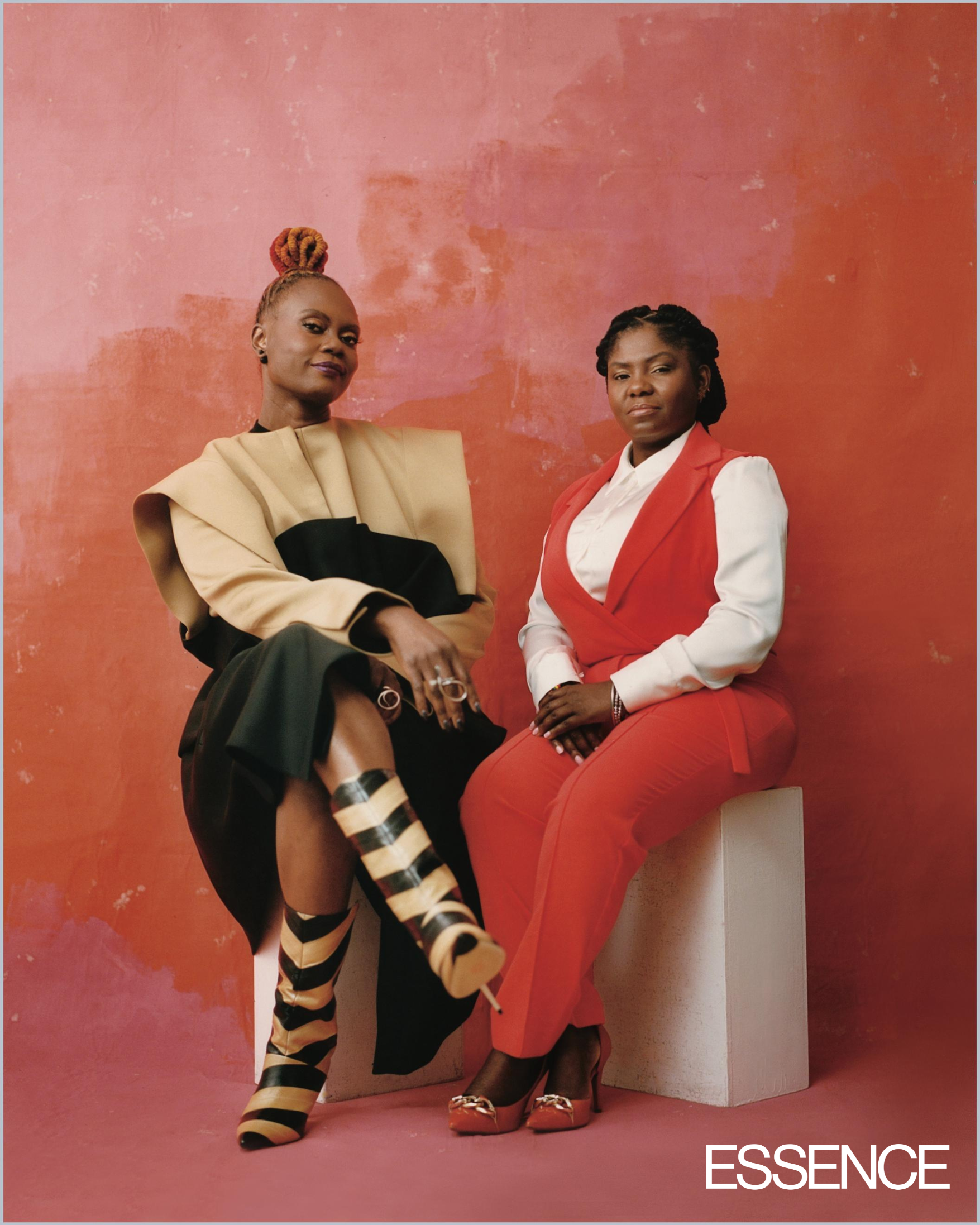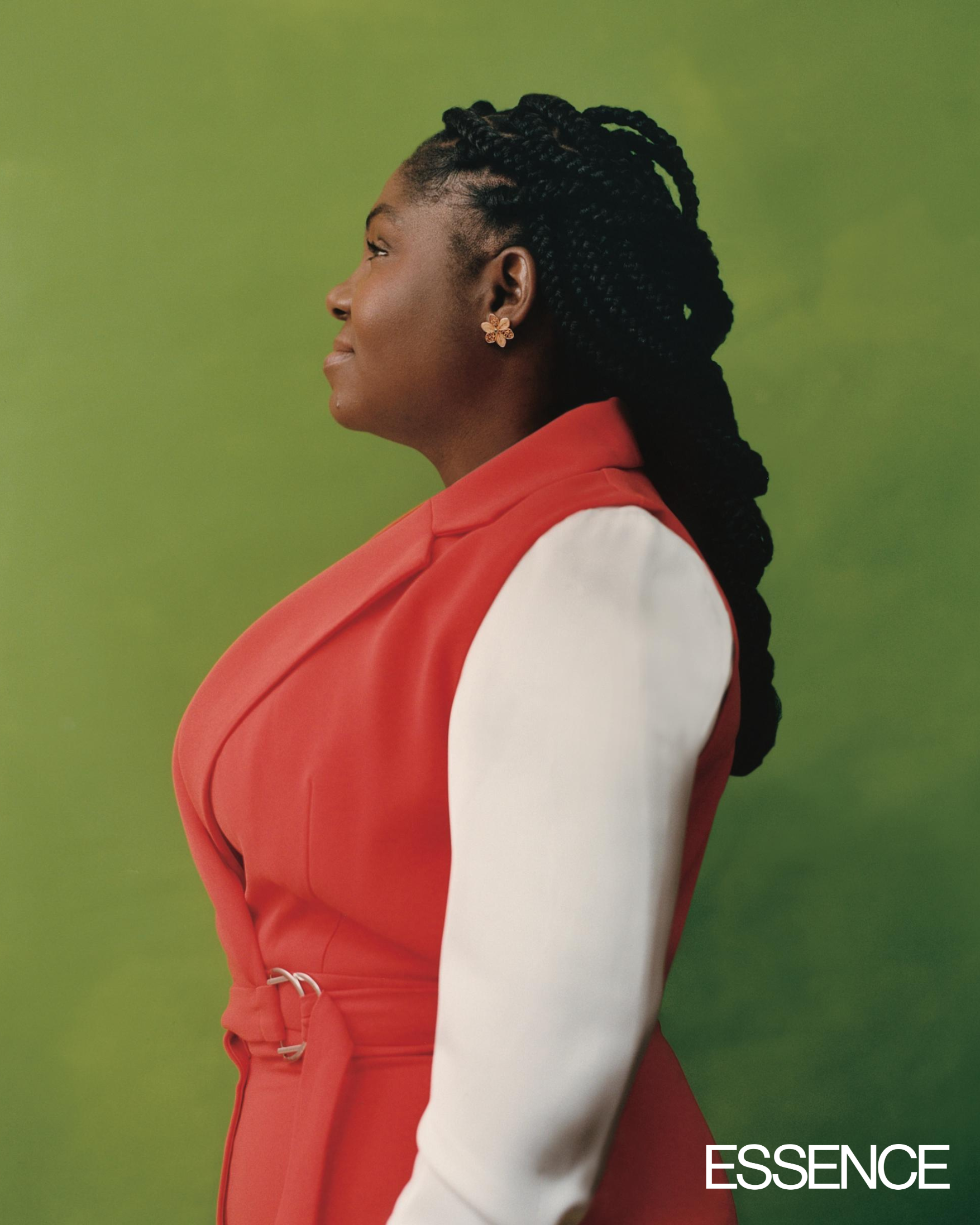
[ad_1]
Hello, family. It’s me, Caroline Wanga, president and CEO of ESSENCE Ventures—excited to bring you another edition of Chief to Chief. This one in particular is with a woman I have had on my list to talk with for quite awhile and I have the honor of engaging with her on this platform. As a reminder, Chief to Chief is a platform about meeting women around the world who are playing chief roles in communities, playing chief roles in corporate settings, playing chief roles in countries. We’re telling the stories of both what they do and who they are—so you can be inspired to find the chief within you and the change you are supposed to make in the world. Today I invite you to a conversation like no other. Here’s the Vice President of the country of Colombia, Madame Vice President Francia Márquez. Enjoy!
Caroline Wanga: I would like to start with the question, who is Francia Márquez? How would you answer that?
Francia Márquez: Hello, Caroline. Thank you for inviting me, in the first place, to participate in this wonderful program. Describing oneself is always a little difficult—however, I am because we are. I am a part of a community. I cannot identify myself, because what I am and what I represent today are part of a people, of a collective struggle. So I am the memory of my grandmother, of the women of my community who have fought to defend the land, who have fought for their identity, who have fought to break the chains of oppression. I am a part of a heritage and a history that did not begin with slavery, that goes much further. I am part of a story that began on the Motherland, on the African continent. I am an Afro-descendant woman. I recognize myself. I determine myself as such, reaffirming our identity and our ways. I am part of an extended family that has historically fought for the freedom and dignity of people who have lived a significant number of oppressions—such as slavery, racism and discrimination. And, well, I am a woman who raises her voice, like many other women in Colombia, in Africa and in the world.

Wanga: Can you tell me what it means to be Afro-Colombian? If you were to educate people on that, what does that mean?
Márquez: This is a very important question. First, I want to say that Colombia is one of the countries of the Americas that has the largest Afro-Latin population. First is Brazil and then the United States, and the third largest is Colombia. However, when you go to other places, that is not recognized. Being an Afro-descendant or Black woman in Colombia is not an easy task. It means carrying many racial stereotypes, and still living a colonial history that has marked our lives in some way. It is also a show of resistance. Afro-descendant women have resisted all forms of oppressions and exclusions.
Wanga: I am so proud of you and admire you so much. So if that is the background of being Afro-Colombian, how did you make it to being Vice President? What was that journey for you?
Márquez: Well, I thought about becoming Vice President because it is something that I owe to the women of my community. What I owe to my grandmother, who is 93 years old—and she is a woman who does not know how to read and write, but she is a woman who taught me the value of life. And my community taught me the value of construction, of collective care. I am the daughter of a midwife who had to give birth alone to her six children—but she learned to care for other women. And that care, that of seeing ourselves as a family widespread among Black people: that happens in my country. That has allowed Black people in Colombia to resist, and to remain collective, to see ourselves as a community. We do not have the vision of Mom, Dad and son. We are an extended family, and we see each other that way. And that vision, that relationship, taught me to be a leader from a very young age. I wanted to be an actress, a singer, but I saw the women in my community struggling to defend their territory as a living space. I saw the women of my community fighting to stop the illegal mining that was destroying the land. I saw the women of my community planting the land to feed their children. And that experience helped me be part of that fight, socially, collectively, and taught me to raise my voice. And a lot of Black women started telling me, “Yeah, come on, do that,” and many young people said: “We are going to support that.” And we began to carry out a whole political campaign process, from the heart—without any financial resources but with a conviction for change. And that is why, today, I am the Vice President of my country. My people heard me. My people heard me as a reflection of their silent voices. My people saw me as a voice that could resonate in many places, and that is what I continue to do.
Wanga: So one of the things that is on your agenda is Africa—why is that connection important for Colombia?
Márquez: Well, I think this is a historical debt that exists between Afro-descendant peoples and the African continent. We are very aware, in Colombia, that our roots are in Africa. We are very aware that as people of African descent, we have an African heritage. And for many years, what we were told and shown about Africa were children with flies in their mouths—miserable people, and poor. And when people asked where we come from, the only story we knew was, “You are descendants of slaves.” The emancipation processes that we have carried out in our country, in some way, have taught me to understand that we are not descendants of slaves—that we are descendants of free African men and women who were enslaved.

Wanga: So my last question, for the many people who will get to see this. What advice would you give them on how to play a role, from the chief chair, in changing the things in their community that are not right for them? What advice would you give them?
Márquez: Well, I want to first congratulate the work that ESSENCEdoes and what you do with your entire team. I believe that this platform is already an example of what needs to be done. In many of our communities, our people grow up without political, social, cultural, economic references. Our people sometimes believe that we do not have the right to occupy certain spaces and places. But the place we must occupy is the one that society has imposed on us. And I think breaking away from that is part of the challenge, because the color of the skin cannot define the place we must occupy. We have the right to occupy the place we want.
And now that I am in the vice presidency, I have to be strong—because there are White, racist people who have said that the vice presidency is not my place. They consider that my place is still to work in a family home as a domestic-service employee. They have this vision that we cannot occupy spaces of power. My main message is for the boys and girls, Afro-descendants and indigenous people, and for women, that they do not feel ashamed of their identity, of their history. We must wear our Blackness with pride, our identity with pride. They made us feel ashamed of who we are. Women are also made to feel we are not capable, that we have to obey and remain silent. And I think it’s time for us to speak up and take leadership.
When I go to the most marginalized territories of my country, I see the Black children—they come and hug me, and cry, and tell me, “I’m going to study because I want to be like you.” That didn’t happen before. See what the boys and girls of my country want to be—presidents. They want to be actors or actresses. They want to be, well, anything. It’s very important. [Historically], in many moments, the children of our country just wanted to be a part of an armed group in our territories, because of what they have seen. They only saw armed groups, and they only wanted to have a rifle in their hand, to do the same thing they were being taught. Today, we are changing those paradigms. We have the first Minister of Education in my country, in this government, who is a woman of African descent. The Ministry of Education had never been occupied by an Afro-descendant woman—because education was supposed to be imparted not by us, or addressed not by us, but by someone who does not have our skin color. Changing that is part of the message that the world has to receive.
We have to continue building in the community. I think a lot about economics. I believe that we Afro-descendants have to articulate and unite in terms of economic strengthening, because our people live in precarious conditions, without access to drinking water, without access to education, without decent housing, and that is not right. But we can only move forward if we work together. The unity between peoples has to be a reference. It has to be a bet. That’s why I’m trying to make bilateral diplomatic connections with some African countries, multilateral with all African countries, if possible. I think it offers the possibility of reconnecting with our identity, culturally, economically, and also puts together agendas for debate and political discussion that we have to push, such as the challenges of climate change. I believe that each person has their own ability to be a leader. I believe there is no rule that tells one how to be a leader. You simply have to listen to the heart and work to help your community—and you should have enough strength to fight and uphold your conviction of justice.
Wanga: Madame Vice President, I am humbled. I am honored. I am activated to play whatever role you need me to as a Black woman, and ESSENCE Ventures as a Black platform, to drive this mission forward. This is the way in which we right the wrongs that divided our people—and anything we can do to be in support of that, consider me there.

“We are not descendants of slaves. We are descendants of free Africans who were enslaved.”
Photographed By: Camila Falquez
Production credits: Wanga Makeup: Michela Wariebi using Danessa Myricks Beauty. Vice President MÁrquez Hair and Makeup: Zola Headley using Danessa Myricks Beauty. Photo Assistants: Albert Font Garcia, Sean Manuel, and Luis Rincon Alba. Production Assistant: Kiernan Francis. Post-production: picturehouse + thesmalldarkroom. Special Thanks to Park Lane New York.
[ad_2]
Source link







